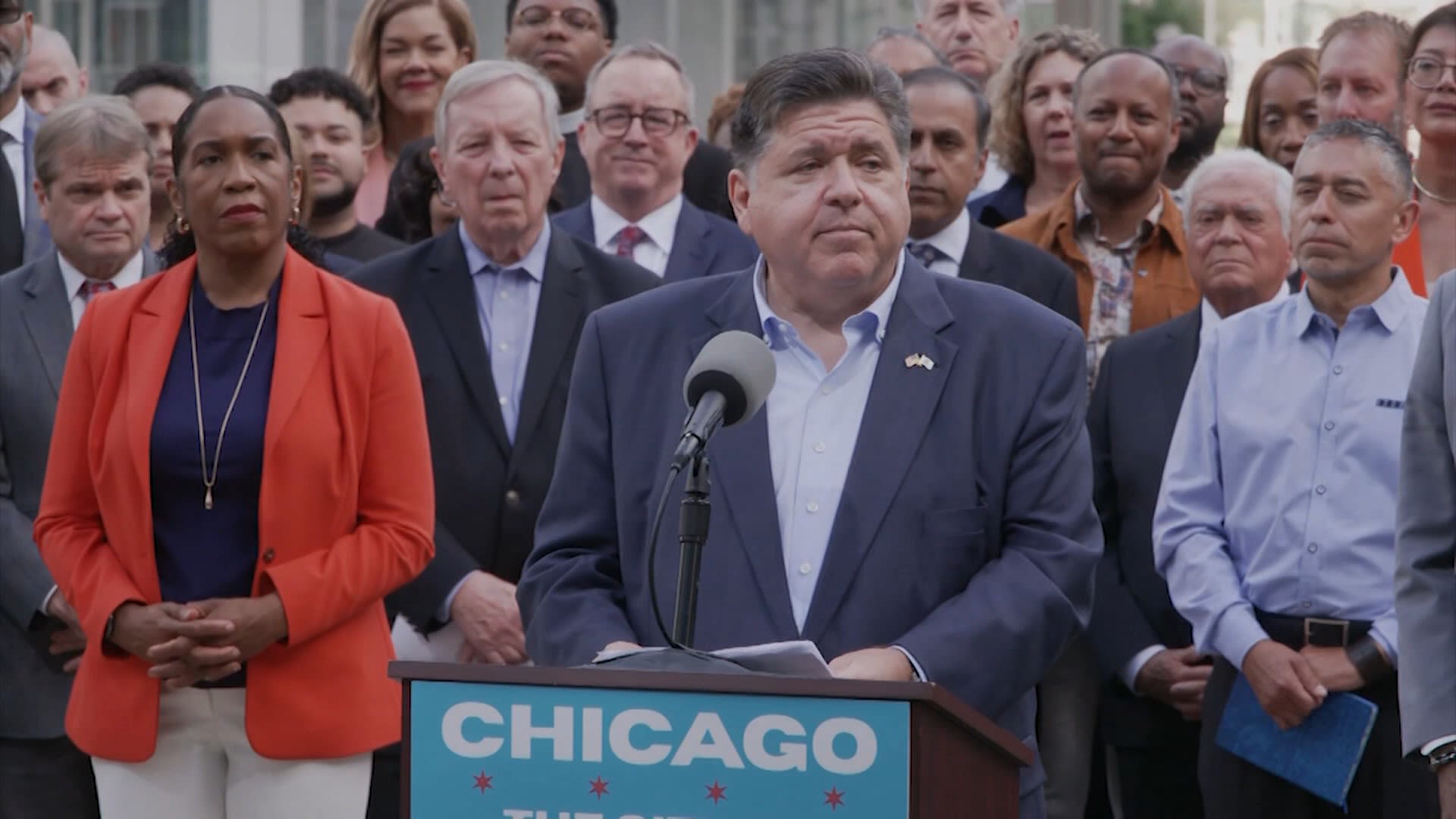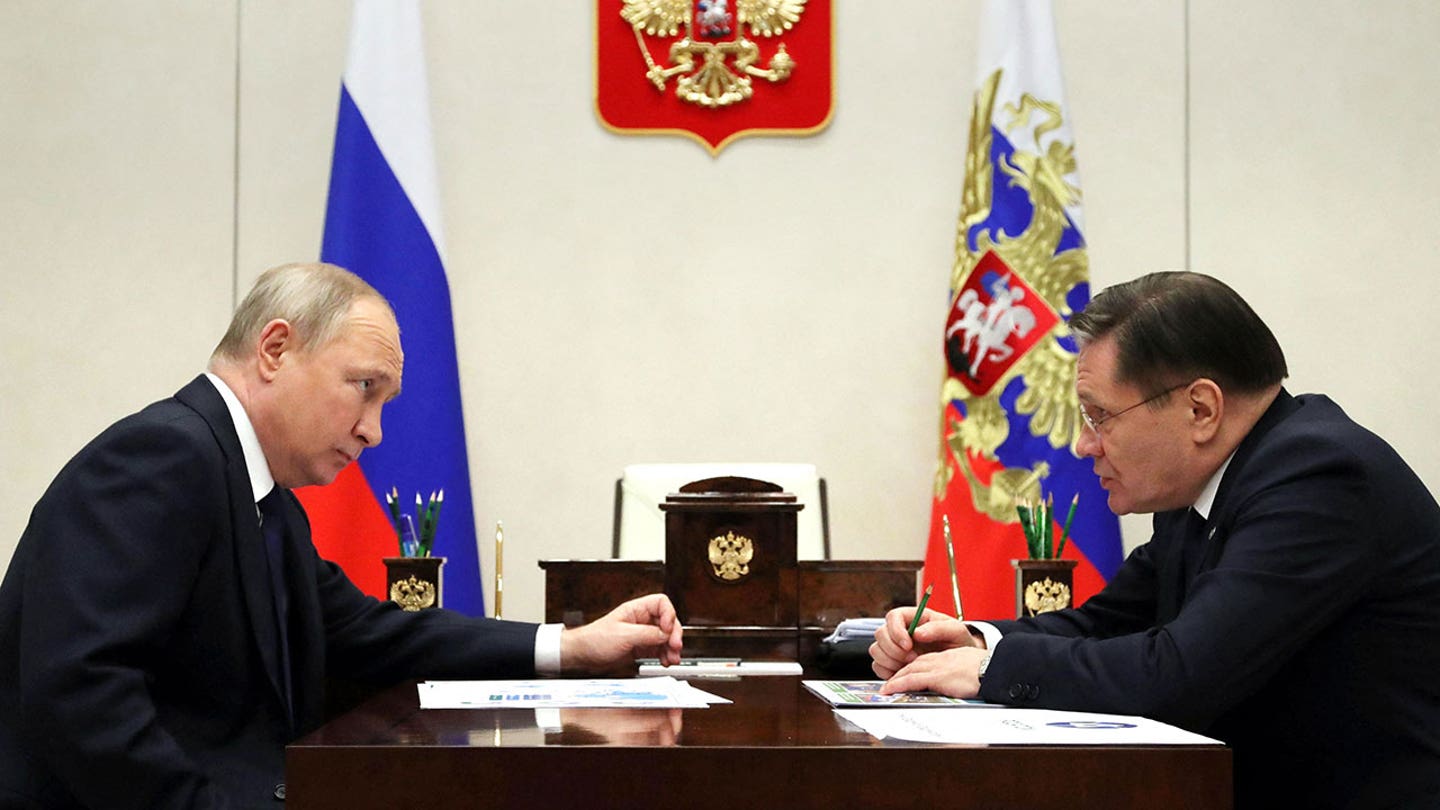
Fact check: Trump’s barrage of false claims about crime in Washington, DC
Entities mentioned:
- President Donald Trump: Power, Control, Recognition
- Washington, DC: Security, Freedom, Unity
- National Guard: Duty, Security, Control
- Biden administration: Legacy, Justice, Professional pride
- Justice Department: Justice, Duty, Obligation
- Washington Post: Professional pride, Duty, Influence
Article Assessment:
Credibility Score: 75/100
Bias Rating: 45/100 (Center)
Sentiment Score: 35/100
Authoritarianism Risk: 65/100 (Authoritarian Tendencies)
Bias Analysis:
The article presents a balanced fact-check of Trump's claims, using official data and expert opinions. While it does focus on debunking Trump's statements, it acknowledges positive developments and provides context for crime statistics.
Key metric: Public Safety and Law Enforcement Effectiveness
As a social scientist, I analyze that this article significantly impacts the Public Safety and Law Enforcement Effectiveness metric in the United States. The piece focuses on President Trump's claims about crime reduction in Washington, DC, following a federal takeover of local law enforcement. While there has been a decrease in reported crimes, the article fact-checks several of Trump's statements, revealing exaggerations and inaccuracies. This misrepresentation of crime statistics and the effectiveness of federal intervention could lead to misguided public policy decisions and erode trust in both local and federal law enforcement agencies. The controversy surrounding the takeover, coupled with the reported local opposition, suggests potential long-term negative impacts on community-police relations and the overall effectiveness of law enforcement strategies.

‘Military occupation’: Chicago mayor responds to Trump signaling he might send National Guard to the city
Entities mentioned:
- Brandon Johnson: Righteousness, Duty, Self-respect
- Donald Trump: Power, Control, Influence
- Anderson Cooper: Professional pride, Curiosity, Duty
- National Guard: Duty, Security, Control
Article Assessment:
Credibility Score: 70/100
Bias Rating: 45/100 (Center)
Sentiment Score: 35/100
Authoritarianism Risk: 55/100 (Mixed/Neutral)
Bias Analysis:
The article presents both sides of the issue by including the mayor's response and Trump's actions. However, the use of the term 'military occupation' in the headline may slightly frame the issue from the mayor's perspective.
Key metric: Public Safety and Crime Rate
As a social scientist, I analyze that this article highlights a potential conflict between federal and local authorities over crime control measures. The use of terms like 'military occupation' by the Chicago mayor suggests strong opposition to federal intervention, indicating a clash between local autonomy and centralized power. This situation could impact public safety metrics by either increasing law enforcement presence or creating tension that might exacerbate existing issues. The article raises questions about the effectiveness and appropriateness of using military-style interventions in urban crime scenarios, which could have significant implications for crime rates and public perception of safety.

Did Trump really end six — or seven — wars?
Entities mentioned:
- Donald Trump: Recognition, Legacy, Power
- Volodymyr Zelensky: Security, Unity, Self-preservation
- White House: Influence, Legacy, Recognition
- Celeste Wallander: Professional pride, Duty, Wariness
- Ilham Aliyev: Loyalty, Recognition, Influence
- Hun Manet: Loyalty, Recognition, Influence
- Narendra Modi: Pride, Self-preservation, Power
Article Assessment:
Credibility Score: 75/100
Bias Rating: 55/100 (Center)
Sentiment Score: 45/100
Authoritarianism Risk: 35/100 (Generally Democratic)
Bias Analysis:
The article presents a balanced view, acknowledging Trump's successes while critically examining his claims. It includes perspectives from various sources and provides context for each conflict mentioned, indicating a relatively centrist approach.
Key metric: US Global Influence
As a social scientist, I analyze that this article critically examines President Trump's claims of ending multiple international conflicts. While acknowledging some diplomatic successes, it highlights the complexity and fragility of these agreements. Trump's approach seems to prioritize quick, visible wins over long-term conflict resolution, potentially risking sustainable peace for short-term recognition. The article suggests that Trump's foreign policy strategy may be more focused on personal legacy and Nobel Prize aspirations than on comprehensive diplomatic solutions. This approach could impact US global influence by presenting a mixed image of American leadership - assertive in brokering deals but potentially lacking in follow-through and depth of engagement.
- Read more about Did Trump really end six — or seven — wars?
- Log in to post comments

Trump’s new warnings about mail-in voting are the most sinister yet
Entities mentioned:
- Donald Trump: Power, Control, Self-preservation
- Vladimir Putin: Influence, Control, Power
- Republican Party: Power, Control, Self-preservation
- Democratic Party: Justice, Security, Freedom
- Karoline Leavitt: Loyalty, Duty, Professional pride
- Adrian Fontes: Justice, Duty, Wariness
- Katie Porter: Justice, Ambition, Moral outrage
- Volodymyr Zelensky: Duty, Security, Self-preservation
Article Assessment:
Credibility Score: 75/100
Bias Rating: 35/100 (Lean Left)
Sentiment Score: 25/100
Authoritarianism Risk: 70/100 (Authoritarian Tendencies)
Bias Analysis:
The article leans left in its framing, presenting Trump's actions as a clear threat to democracy. While it includes factual information, the tone and language choices (e.g., 'sinister', 'alarming') suggest a negative view of Trump and his allies.
Key metric: Electoral Integrity
As a social scientist, I analyze that this article highlights a significant threat to electoral integrity in the United States. Trump's renewed attacks on mail-in voting, coupled with his false claims of election fraud and attempts to influence future elections, pose a serious risk to democratic processes. The article suggests a pattern of behavior aimed at undermining faith in electoral systems, potentially to lay groundwork for contesting future election results. This could lead to decreased voter confidence, increased political polarization, and potential civil unrest. The involvement of foreign influence (Putin) in shaping domestic election narratives is particularly concerning, as it may exacerbate existing tensions and further erode trust in democratic institutions.

Who is John Bolton? What to know about Trump’s former national security adviser
Entities mentioned:
- John Bolton: Righteousness, Influence, Professional pride
- Donald Trump: Power, Control, Revenge
- FBI: Duty, Justice, Security
- Joe Biden: Ambition, Duty, Power
- George W. Bush: Power, Loyalty, Legacy
Article Assessment:
Credibility Score: 75/100
Bias Rating: 55/100 (Center)
Sentiment Score: 35/100
Authoritarianism Risk: 45/100 (Mixed/Neutral)
Bias Analysis:
The article presents a relatively balanced view of John Bolton's career and controversies, including criticism from both sides of the political spectrum. While it does highlight Trump's conflicts with Bolton, it also mentions Bolton's disagreements with Democrats, maintaining a centrist perspective.
Key metric: Political Polarization Index
As a social scientist, I analyze that this article highlights the complex interplay between political figures, institutions, and the justice system in the United States. The focus on John Bolton's career trajectory and his relationship with various administrations, particularly his tumultuous tenure under Trump, underscores the increasing polarization in American politics. The FBI's search of Bolton's property, allegedly related to his memoir, raises questions about the potential weaponization of government agencies against political opponents. This event could further erode public trust in institutions and exacerbate existing political divisions, potentially leading to an increase in the Political Polarization Index. The article also touches on broader themes of national security, foreign policy, and the delicate balance between transparency and classified information, all of which contribute to the overall political climate.

Judge to require that Kilmar Abrego Garcia remain in the US while he challenges deportation to Uganda
Entities mentioned:
- Kilmar Abrego Garcia: Justice, Self-preservation, Freedom
- Judge Paula Xinis: Justice, Duty, Professional pride
- Trump administration: Control, Power, Determination
- US Immigration and Customs Enforcement (ICE): Duty, Control, Security
- Lydia Walther-Rodriguez (CASA): Justice, Moral outrage, Advocacy
- Simon Sandoval-Moshenberg: Justice, Professional pride, Duty
- Sen. Chris Van Hollen: Justice, Duty, Advocacy
Article Assessment:
Credibility Score: 75/100
Bias Rating: 40/100 (Lean Left)
Sentiment Score: 35/100
Authoritarianism Risk: 30/100 (Generally Democratic)
Bias Analysis:
The article leans slightly left, giving more space to perspectives sympathetic to Abrego Garcia and critical of the Trump administration. However, it does include factual information about the legal proceedings and some government perspectives, maintaining a degree of balance.
Key metric: Immigration Policy Effectiveness
As a social scientist, I analyze that this case highlights significant tensions in U.S. immigration policy and its implementation. The article portrays a complex legal battle involving multiple government entities and advocacy groups, centering on the rights of an individual facing deportation. The case of Kilmar Abrego Garcia exemplifies the challenges in balancing national security concerns with individual rights and due process. The involvement of a federal judge intervening in the deportation process suggests potential overreach or procedural issues within the immigration enforcement system. This case may have broader implications for immigration policy, potentially influencing future legal precedents and public perception of the immigration system's fairness and effectiveness.

Trump signs executive order establishing ‘specialized’ National Guard units to address crime in cities
Entities mentioned:
- Donald Trump: Power, Control, Legacy
- Pete Hegseth: Duty, Loyalty, Professional pride
- National Guard: Duty, Security, Control
- Rachel VanLandingham: Professional pride, Wariness, Justice
- Tammy Duckworth: Moral outrage, Justice, Duty
Article Assessment:
Credibility Score: 70/100
Bias Rating: 55/100 (Center)
Sentiment Score: 35/100
Authoritarianism Risk: 65/100 (Authoritarian Tendencies)
Bias Analysis:
The article presents multiple viewpoints, including critical perspectives, which contributes to a relatively balanced presentation. However, there's a slight lean towards emphasizing concerns and potential negatives of the executive order.
Key metric: Domestic Security and Civil Liberties Balance
As a social scientist, I analyze that this executive order represents a significant shift in the use of military forces for domestic law enforcement. The creation of 'specialized units' within the National Guard specifically for handling public order issues raises concerns about the militarization of civilian policing and potential infringement on civil liberties. The order's vague language and unclear implementation details leave room for potential misuse of these units, especially in politically motivated deployments. This move could impact the delicate balance between maintaining public safety and preserving individual freedoms, potentially leading to increased tension between federal and state authorities, as well as between the government and civilians. The focus on urban areas, particularly those led by Democrats, suggests a politicization of law enforcement efforts, which could further exacerbate political divisions and undermine public trust in both law enforcement and government institutions.

Pritzker tells Trump to stay out of Chicago: ‘You are neither wanted here nor needed here’
Entities mentioned:
- JB Pritzker: Righteousness, Moral outrage, Duty
- Donald Trump: Power, Control, Influence
- Brandon Johnson: Unity, Duty, Security
- Pete Hegseth: Duty, Loyalty, Control
Article Assessment:
Credibility Score: 75/100
Bias Rating: 40/100 (Lean Left)
Sentiment Score: 25/100
Authoritarianism Risk: 65/100 (Authoritarian Tendencies)
Bias Analysis:
The article leans slightly left, giving more prominence to Governor Pritzker's perspective and criticisms of the Trump administration. While it includes some information on the administration's plans, it primarily frames the issue through the lens of opposition to federal intervention.
Key metric: Civil Liberties and Rule of Law
As a social scientist, I analyze that this article highlights a significant conflict between state and federal authorities over the use of federal forces in American cities. The dispute centers on the balance of power between different levels of government and raises concerns about potential threats to civil liberties and democratic norms. Governor Pritzker's strong opposition to federal intervention without local consent reflects deep concerns about the erosion of local autonomy and the potential for federal overreach. This conflict has implications for the separation of powers, federalism, and the role of military forces in domestic affairs, all of which are crucial elements of the American democratic system.

The history of how Trump and Bolton's relationship fell to tatters
Entities mentioned:
- John Bolton: Power, Influence, Self-preservation
- Donald Trump: Power, Control, Revenge
- FBI: Duty, Justice, Security
- Rex Tillerson: Duty, Professional pride
- Mike Pompeo: Loyalty, Influence
- Robert C. O'Brien: Duty, Ambition
- JD Vance: Duty, Loyalty
Article Assessment:
Credibility Score: 75/100
Bias Rating: 55/100 (Center)
Sentiment Score: 30/100
Authoritarianism Risk: 40/100 (Generally Democratic)
Bias Analysis:
The article presents a relatively balanced account of the Trump-Bolton relationship, including quotes from both sides. While it leans slightly towards emphasizing Trump's criticisms of Bolton, it also provides context for their initial positive relationship.
Key metric: Political Stability Index
As a social scientist, I analyze that this article highlights the volatile nature of high-level political relationships in the U.S. government, particularly within the Trump administration. The deterioration of the relationship between Trump and Bolton, culminating in FBI raids on Bolton's properties, demonstrates the potential instability in national security leadership. This can significantly impact the Political Stability Index by showcasing how quickly alliances can shift and how internal conflicts can lead to potential security risks, especially concerning the handling of classified information. The ongoing investigation into Bolton also raises questions about the management of sensitive documents by former officials, which could have implications for national security and governmental transparency.

Russia looks to update nuclear program amid ‘colossal threats’ from West
Entities mentioned:
- Alexei Likhachev: Security, Power, Duty
- Vladimir Putin: Power, Security, Influence
- Donald Trump: Security, Competitive spirit, Power
- Russia: Security, Power, Self-preservation
- United States: Security, Influence, Power
- China: Power, Influence, Security
Article Assessment:
Credibility Score: 75/100
Bias Rating: 55/100 (Center)
Sentiment Score: 30/100
Authoritarianism Risk: 55/100 (Mixed/Neutral)
Bias Analysis:
The article presents a relatively balanced view, incorporating perspectives from both Russian and U.S. sources. However, there's a slight lean towards Western viewpoints, particularly in framing Russia's actions as potentially threatening.
Key metric: Global Nuclear Stability Index
As a social scientist, I analyze that this article highlights a concerning trend towards nuclear armament and away from disarmament efforts. Russia's emphasis on upgrading its nuclear capabilities, coupled with similar rhetoric from the U.S., suggests a potential new arms race. This development, along with the uncertain future of the New Start Treaty, could significantly destabilize global nuclear security. The article underscores the tensions between major powers and the use of nuclear capabilities as a geopolitical tool, which may lead to increased global instability and a higher risk of nuclear conflict.